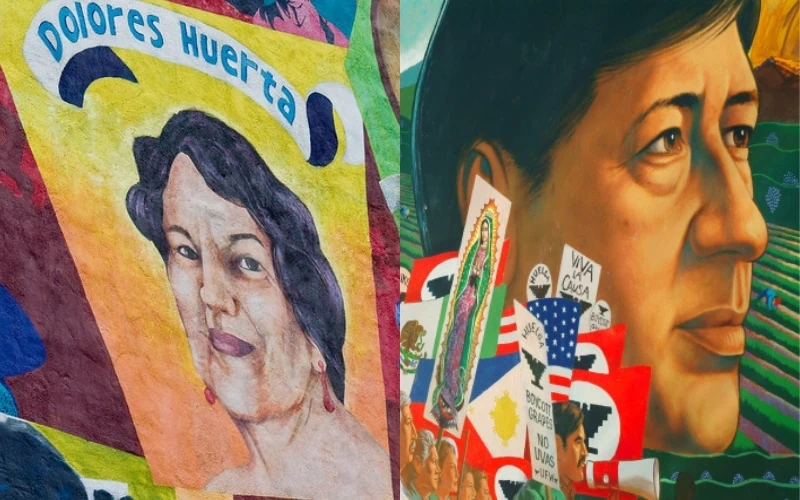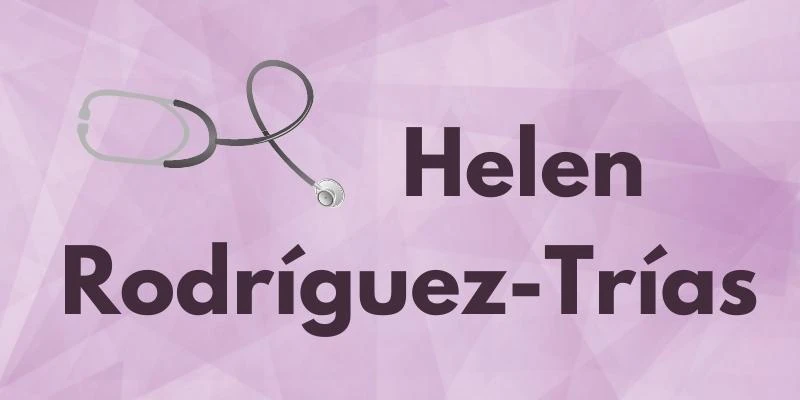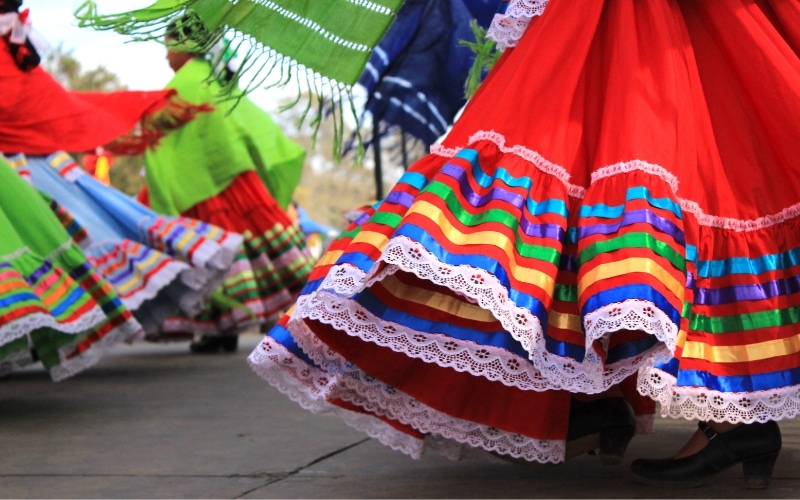What is Chávez-Huerta Day?
Inside: The history behind the day of community service, founded in honor of César Chávez and Dolores Huerta.
The Chavez-Huerta Day of Service is a day to honor the legacy of two incredible Latinos in the fight for the rights of American farm workers: César Chávez and Dolores Huerta.
Together, the two activists founded United Farm Workers of America, the largest farm worker union in the U.S. to this day.
Their fight for greater rights changed laws and improved conditions for agricultural workers.
Chavez-Huerta Day recognizes the contributions of workers and promotes service and volunteerism in communities.
Also known as César Chávez Day, the holiday is celebrated on March 31st in commemoration of Chávez’s birthday. California declared it as a state holiday in 2000. Several other states, including Arizona, Washington, Colorado, Michigan, New Mexico, Texas, and Wisconsin, also celebrate.
César Chávez died in 1993, but Huerta continues to advocate and organize.
Contents:
1. How is Chavez Huerta Day Celebrated?
2. How did Chávez and Huerta work together?
3. Who is César Chávez?
4. Who is Dolores Huerta?
5. Ideas for Celebrating
Related: 40 Latinx Leaders You Should Know About
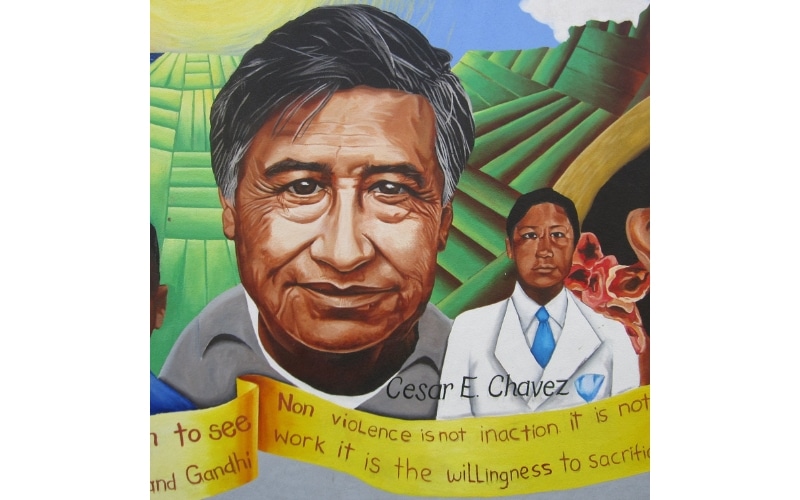
How is Chavez Huerta Day Celebrated?
Many schools and organizations in California and other states hold service events and educational programs on Chavez Huerta Day of Service. These events focus on promoting social justice, civil rights, and environmentalism, which were causes that Chávez and Huerta cared deeply about.
Cesar Chavez Day is a reminder of the ongoing struggle for social justice and equality in the United States. It’s a chance for people and communities to come together and work towards creating a more just and equitable society.
Chávez-Huerta
Chávez and Huerta met in 1955. They were both working to address the needs of farm workers, and realized they could do even more together.
In 1962, the two formed the National Farm Workers Association (NFWA). Later, the name was changed to the United Farm Workers of America (UFW).
Under Chávez and Huerta’s leadership, the UFW organized strikes and boycotts to demand better labor rights and wages for farm workers. Through nonviolent tactics, such as marches and protests, they drew attention to the plight of farm workers and pressured growers to improve working conditions.
One of their most successful and famous campaigns was the Delano grape strike in 1965. The strike lasted for five years and drew national attention to the struggles of farm workers. The UFW organized boycotts of grapes and other products, and eventually won a contract with grape growers that included higher wages and better working conditions.
Chávez and Huerta’s efforts with the UFW had a significant impact on the labor movement and civil rights movement in the United States, especially in the 1960s and 1970s.
Both are iconic labor activists who helped to raise awareness of the struggles of farm workers and other marginalized communities, and their work paved the way for improved working conditions and labor protections.
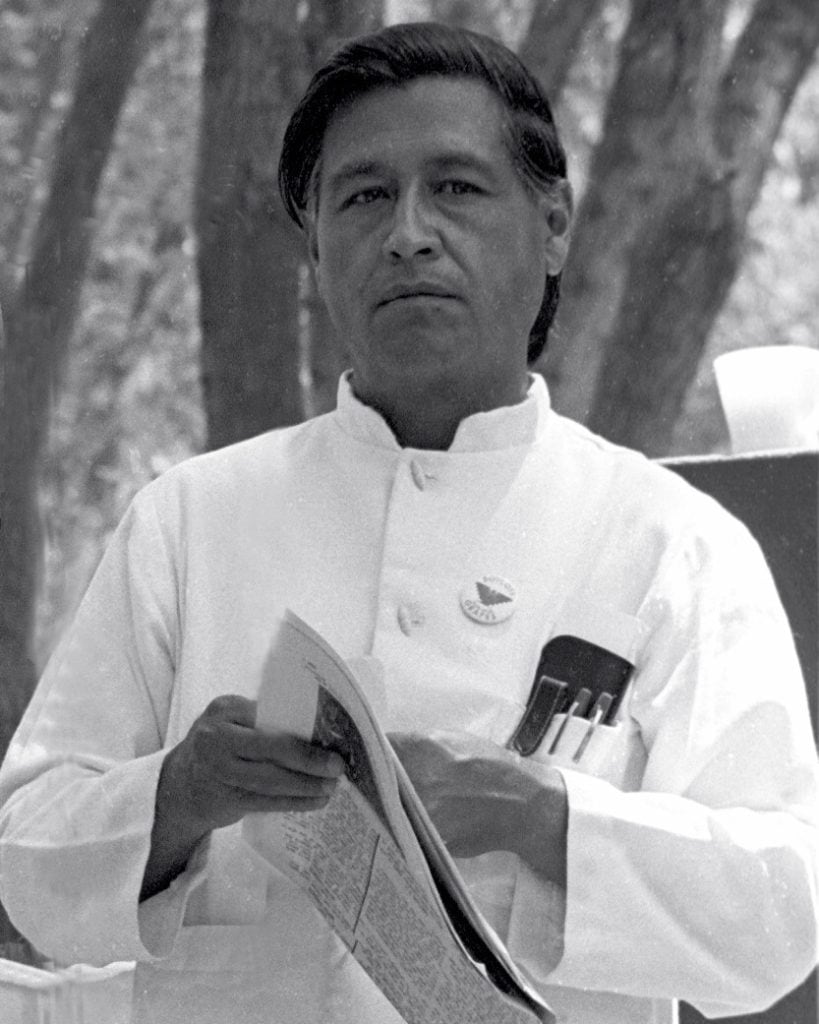
César Chávez
César Chávez was born on March 31, 1927, in Yuma, Arizona. His parents were migrant farmworkers. Growing up, he experienced firsthand the harsh conditions and discrimination that farmworkers faced. As an adult, he became a community organizer to address those hardships he knew first-hand.
Chavez’s leadership and activism had a significant impact on the labor movement and civil rights movement in the United States. His efforts led to the passage of the Agricultural Labor Relations Act in California, which granted farm workers the right to collective bargaining and improved working conditions.
As Chavez once said, “The fight is never about grapes or lettuce. It is always about people.” He believed that every person deserves to be treated with respect and dignity, regardless of their job or where they come from. His legacy continues to inspire people today to fight for social justice and equality.
Dolores Huerta
Dolores Huerta was born on April 10th, 1930, New Mexico, to a Mexican-American family. Her family moved to California, however, and so she grew up among the migrant agricultural communities.
Huerta studied to be a teacher. Moved by the poverty among her students, however, she left teaching to become a community organizer.
In addition to her work with the UFW, Huerta has been involved in numerous other social justice organizations, including the Dolores Huerta Foundation, which she founded in 2002. She also fought for gender and racial equality, advocating for women’s rights and the rights of other minority groups.
Huerta is the originator of the famous phrase “¡Sí se puede!” (in English, yes you can!).
Throughout her career, Huerta has been the recipient of numerous awards and honors, including the Presidential Medal of Freedom in 2012. She continues to be a voice for marginalized communities and a champion for social justice causes.
Ideas for Celebrating
You can see an example in action from this article on the Houston Independent School District, the largest school district in Texas.
Texas State University held an “open house of gratitude and invited custodial staff and other workers to enjoy snacks. They showed documentaries and shared information about the work of Chávez and Huerta.
Other ideas include community service projects such as planting trees, cleaning up parks and beaches, or helping at food banks.
Image Credits:
“Cesar Chavez 9 ok” (CC BY-NC-ND 2.0) by enactedenvironment
“Dolores Huerta” (CC BY-NC-ND 2.0) by gsz
“happy Cesar Chavez Day! (Dr. Martin Luth” (CC BY-NC-ND 2.0) by throgers
Work permit, CC BY 3.0, via Wikimedia Commons